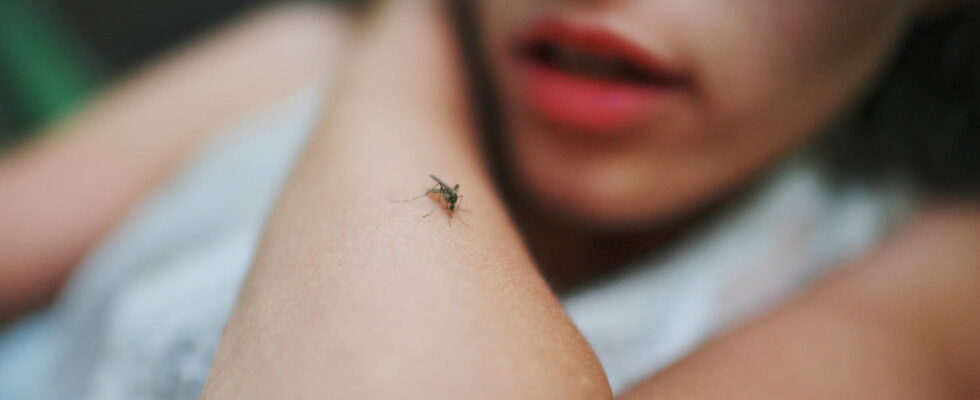A clarification is necessary.
Like every year when the sunny days arrive, mosquito bites intensify and can quickly become the black spot of our vacations. There are many species of mosquitoes but only 15% bite humans. “In France, those that bite us the most are the tiger mosquito and the Culex pipiens mosquito, which bites at night”, explains Professor Anna-Bella Failloux, professor of medical entomology at the Pasteur Institute. But how do I know if my bite is normal or if I have an allergy?
It is the female that bites the mosquito. When it inserts its proboscis into the skin, it injects its saliva, the composition of which is very complex. “It contains around a hundred molecules: against coagulation so that the blood does not stagnate in the tube, anti-vasoconstructors so that the capillary vessels in which it pumps the blood do not retract or even antihistamines which prevent you from feeling the “The latter works more or less well depending on the people.”, specifies Professor Anna-Bella Failloux. When there is a sting, a small red and slightly raised inflammatory pimple may appear. “but it is not a specific reaction. It is simply the saliva administered by the mosquito which produces this reaction”, adds Dr Anne-Karine Correard, allergist. This local inflammation cannot trigger an anaphylactic reaction as can be seen in cases of allergy. Allergy to mosquito bites is therefore impossible and “does not exist” says the allergist. Likewise, the body does not release histamine when you are bitten by a mosquito, as is the case when you have an allergic reaction to something outside the body. For comparison, allergy to hymenoptera (wasps and bees) is possible because the latter defend themselves by injecting venom. “It is a poison that can have a lethal effect” according to Professor Failloux.
However, some people may react more strongly than others to a mosquito bite. “In this case, edema may appear around the bite but this does not lead to a life-threatening risk”reassures Dr Correard. “A person may have more or less attenuated reactions depending on their bite history”, Professor Failloux also tells us. If it has often been bitten, it will develop immunity to the saliva of mosquitoes in its environment and will react less and less, until it no longer feels the bites.
What should you do in case of a mosquito bite? “From the moment the injection bothers me, I think we need to consult”advises Professor Anna-Bella Failloux. “Usually there is not much you can do other than apply an antihistamine to prevent the person from scratching.” To avoid stings, she reminds us that exposed parts such as legs and arms must be protected with loose, covering clothing. It is also important to track down places where larvae can develop in the environment, such as stagnant water points.
